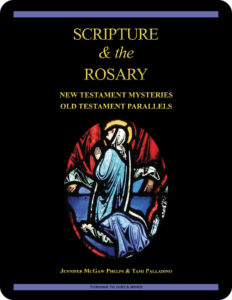favor with God
 The readings for the Fourth Sunday of Advent look at the alarming statement found in the Gospel According to Luke 1:30 (NABRE): “Then the angel said to her, ‘Do not be afraid, Mary, for you have found favor with God.‘” This statement by the angel highlights the reason that Mary is uniquely qualified to bear the Son of God. To fully understand why that is, however, it’s instructive to look at the Greek text.
The readings for the Fourth Sunday of Advent look at the alarming statement found in the Gospel According to Luke 1:30 (NABRE): “Then the angel said to her, ‘Do not be afraid, Mary, for you have found favor with God.‘” This statement by the angel highlights the reason that Mary is uniquely qualified to bear the Son of God. To fully understand why that is, however, it’s instructive to look at the Greek text.
There are two points worth highlighting. First, the word translated as favor is the Greek word χάρις (charis). In its root, charis means “grace” and can operate either from the point of view of the giver or the receiver. Depending on context, charis can be translated as “favor,” or as “kindness,” “partiality,” “gratitude,” “delight,” or “worship.” To understand which, we also need to explore the other relevant part of this phrase, the preposition oddly translated as with. The preposition used in the Greek is παρά, a preposition that in this context typically means “beside” or “in the presence of.”
What does it mean that the Blessed Virgin Mary “found favor with God“? Mary’s favor does not lie in being with God in some abstract or intangible sense. She is described, rather, as next to, beside, or in the presence of God.
What is it that Mary found in God’s presence? In this context, it seems to me that the favor Mary found is partiality or delight on the part of God. The claim of the angel is that Mary can stand in the presence of God and be pleasing to him.
related topics: beatitude; blessed; favorite; gracious; magnify; parthenos
you also may like our study of Scripture & the Rosary (digital only)
 Scripture & the Rosary: New Testament Mysteries, Old Testament Parallels, a 26-lesson Catholic Bible study with an imprimatur, looks at the biblical foundations of the Rosary. The study includes lessons on Pope St. John Paul II’s Rosarium Virginis Mariae (Rosary of the Virgin Mary), the Apostles’ Creed, and the Luminous Mysteries as well as the original 15 Mysteries of the Rosary. Color photographs of stained glass windows depict key scenes in the lives of Jesus and Mary. Free digital lessons rotate throughout the year on our website.
Scripture & the Rosary: New Testament Mysteries, Old Testament Parallels, a 26-lesson Catholic Bible study with an imprimatur, looks at the biblical foundations of the Rosary. The study includes lessons on Pope St. John Paul II’s Rosarium Virginis Mariae (Rosary of the Virgin Mary), the Apostles’ Creed, and the Luminous Mysteries as well as the original 15 Mysteries of the Rosary. Color photographs of stained glass windows depict key scenes in the lives of Jesus and Mary. Free digital lessons rotate throughout the year on our website.
 Click on the picture of the statue of Moses with horns (above) to learn more about Lost in Translation. A new entry is archived each Monday. Contact us to receive Lost in Translation by email every week. You may use any of the contact links on our website to ask Matthew a question.
Click on the picture of the statue of Moses with horns (above) to learn more about Lost in Translation. A new entry is archived each Monday. Contact us to receive Lost in Translation by email every week. You may use any of the contact links on our website to ask Matthew a question.
